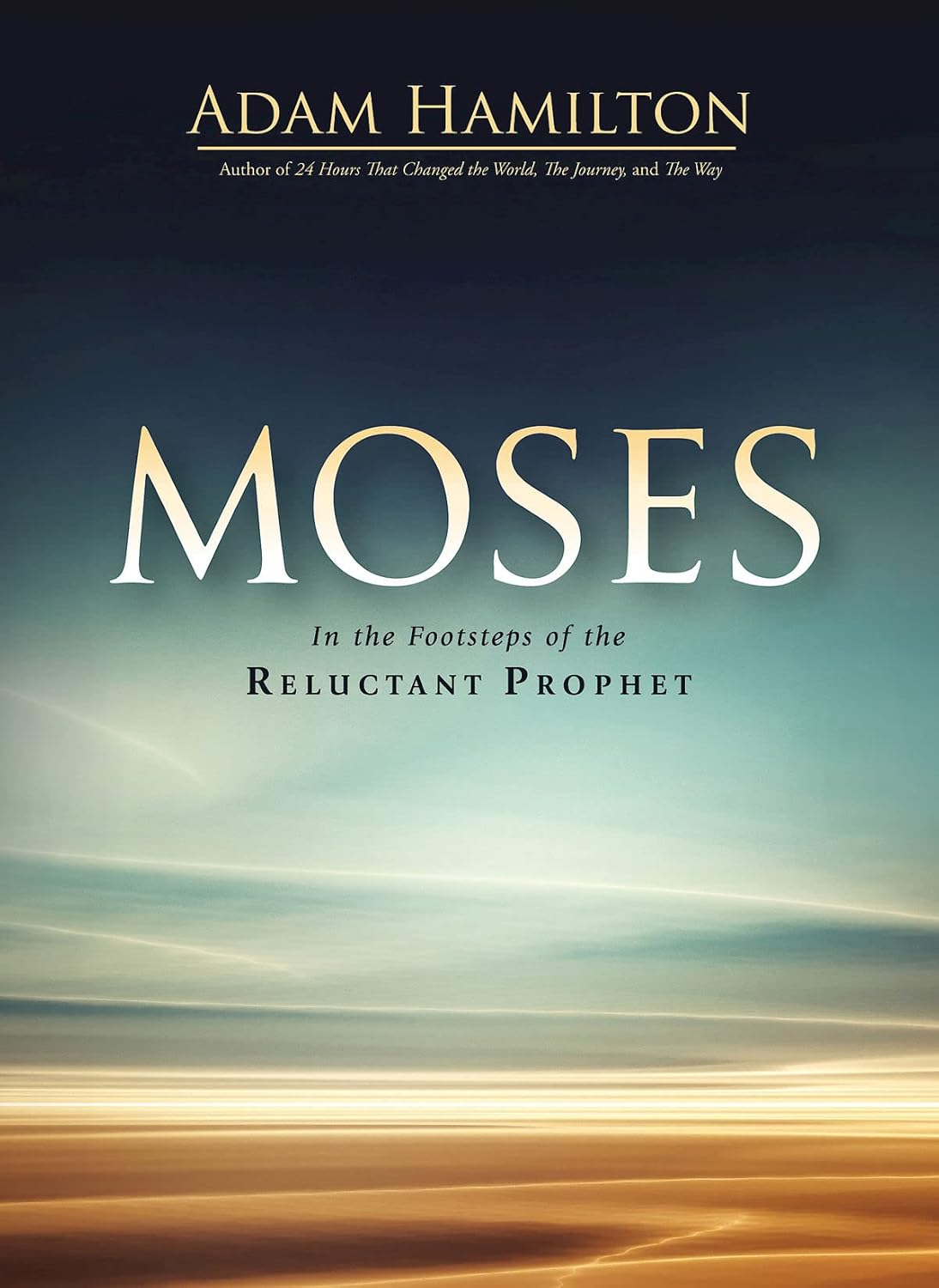New Series – The Life of Moses

This Sunday, October 27, we will begin a brand new sermon series focused on “The Life of Moses.” Moses is a pivotal figure in the Old Testament, called by God to lead the Israelite people out of slavery in Egypt, through the wilderness, and to the Promised Land. He was given up by his mother at three months old because Pharoah was putting all newborn baby boys to death. Ironically, he was discovered by Pharoah’s daughter floating in the Nile River and raised in Pharoah’s house with his own mother being brought in to be his nurse (Exodus 2). The book of Exodus tells the story of Moses’ incredible journey, and we will be looking at it in the weeks to come. I encourage you to start reading Exodus on your own.
I am recommending a good book by Adam Hamilton titled Moses for further study during this series. Also, Rabbi Harold Kushner wrote another excellent book back in 2006 entitled Overcoming Life’s Disappointments, based on the story of Moses.
Kushner says that if you think about it, Moses is a pivotal figure in the Old Testament and there is a lot that we can learn from his life – particularly from the many disappointments that he had to face. Moses is called by God to lead the Israelites out of Egypt only to find Pharaoh being stubborn, uncooperative, and unwilling to compromise. After a series of plagues that God sends on the Egyptian people, Moses is able to finally lead the Israelites out of Egypt. Once they get into the desert, rather than being thankful that they have been freed from slavery and from Pharaoh’s rule, they start complaining that they have nothing to eat and nothing to drink and they wish that they were back in Egypt where at least they were fed. You could say that Moses’ life was one of a man who remained faithful to God despite the ongoing disappointments and letdowns. He had to persevere and press on despite all the setbacks and inconveniences.
Kushner concludes his first chapter by saying, “What if we could be like Moses in our ability to overcome disappointments, frustrations, and the denial of our dreams? What if we could learn from Moses how to respond to disappointment with faith in ourselves and in our future and to respond to heartbreak with wisdom instead of bitterness and depression? Can Moses teach us how to be ourselves, our best selves, even when life doesn’t turn out as we had hoped it would?
“The answer,” Kushner says, “is yes.” God gives Moses the Ten Commandments on Mt. Sinai. These commandments outline God’s desire for how the Israelites should live as part of the Covenantal relationship. They also continue to be a guide for all of us today and have a tremendous influence on aspects of Western culture. When we go against these laws, problems quickly arise.
1. You shall have no other gods before Me.
2. You shall not make for yourself an idol.
3. You shall not take the name of the LORD your God in vain.
4. Remember the Sabbath day, to keep it holy.
5. Honor your father and your mother.
6. You shall not murder.
7. You shall not commit adultery.
8. You shall not steal.
9. You shall not bear false witness against your neighbor.
10. You shall not covet. (Exodus 20)
I’m looking forward to this journey where we focus on Moses’ life, his courage, his leadership, and the many lessons that he can still teach us today.
Recommended Posts

Healing, Growth, & Renewal Over Time
May 30, 2025

Values for Our Graduates
May 20, 2025

Leading in the Church
May 16, 2025

